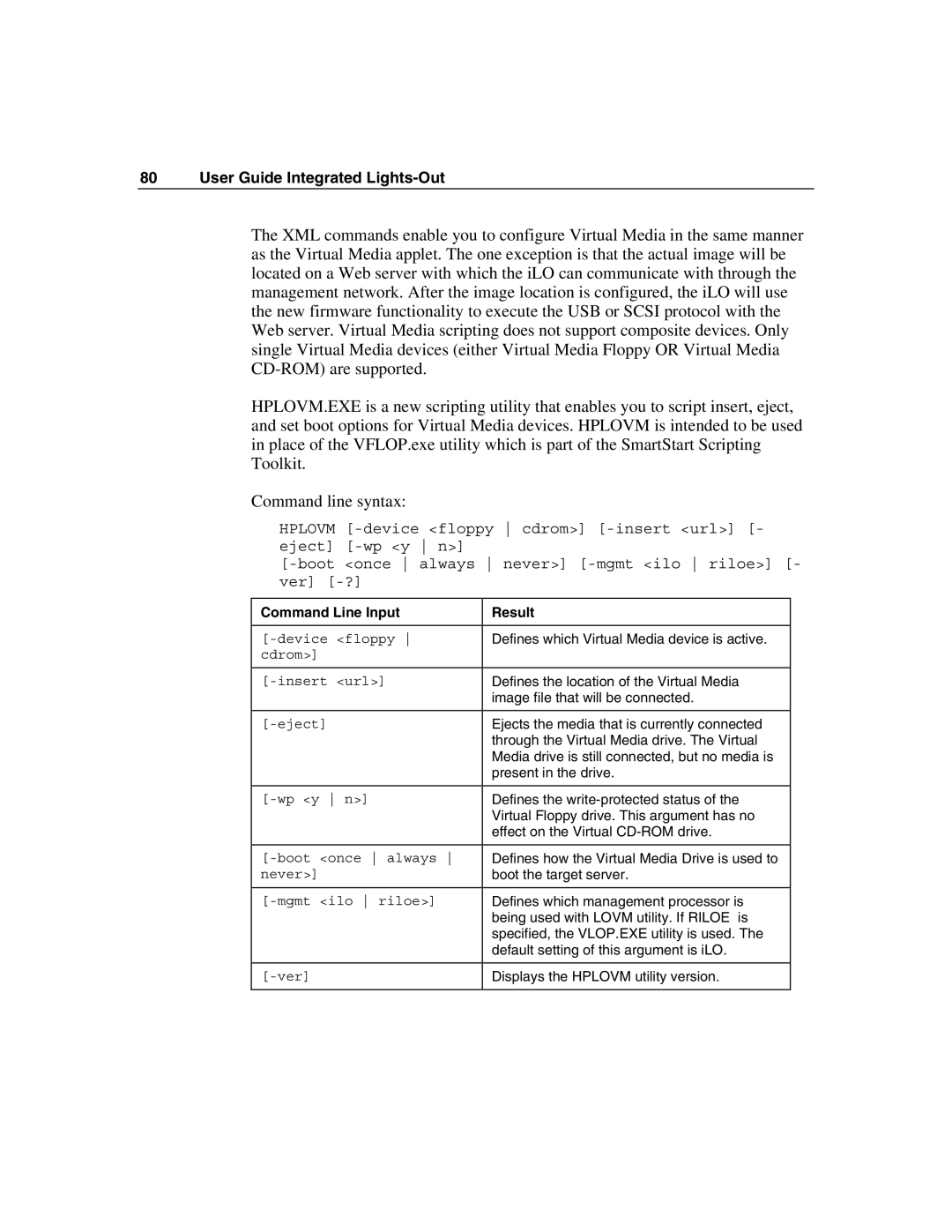80 User Guide Integrated Lights-Out
The XML commands enable you to configure Virtual Media in the same manner as the Virtual Media applet. The one exception is that the actual image will be located on a Web server with which the iLO can communicate with through the management network. After the image location is configured, the iLO will use the new firmware functionality to execute the USB or SCSI protocol with the Web server. Virtual Media scripting does not support composite devices. Only single Virtual Media devices (either Virtual Media Floppy OR Virtual Media
HPLOVM.EXE is a new scripting utility that enables you to script insert, eject, and set boot options for Virtual Media devices. HPLOVM is intended to be used in place of the VFLOP.exe utility which is part of the SmartStart Scripting Toolkit.
Command line syntax:
HPLOVM
Command Line Input | Result |
|
|
Defines which Virtual Media device is active. | |
cdrom>] |
|
|
|
Defines the location of the Virtual Media | |
| image file that will be connected. |
|
|
Ejects the media that is currently connected | |
| through the Virtual Media drive. The Virtual |
| Media drive is still connected, but no media is |
| present in the drive. |
|
|
Defines the | |
| Virtual Floppy drive. This argument has no |
| effect on the Virtual |
|
|
Defines how the Virtual Media Drive is used to | |
never>] | boot the target server. |
|
|
Defines which management processor is | |
| being used with LOVM utility. If RILOE is |
| specified, the VLOP.EXE utility is used. The |
| default setting of this argument is iLO. |
|
|
Displays the HPLOVM utility version. | |
|
|
